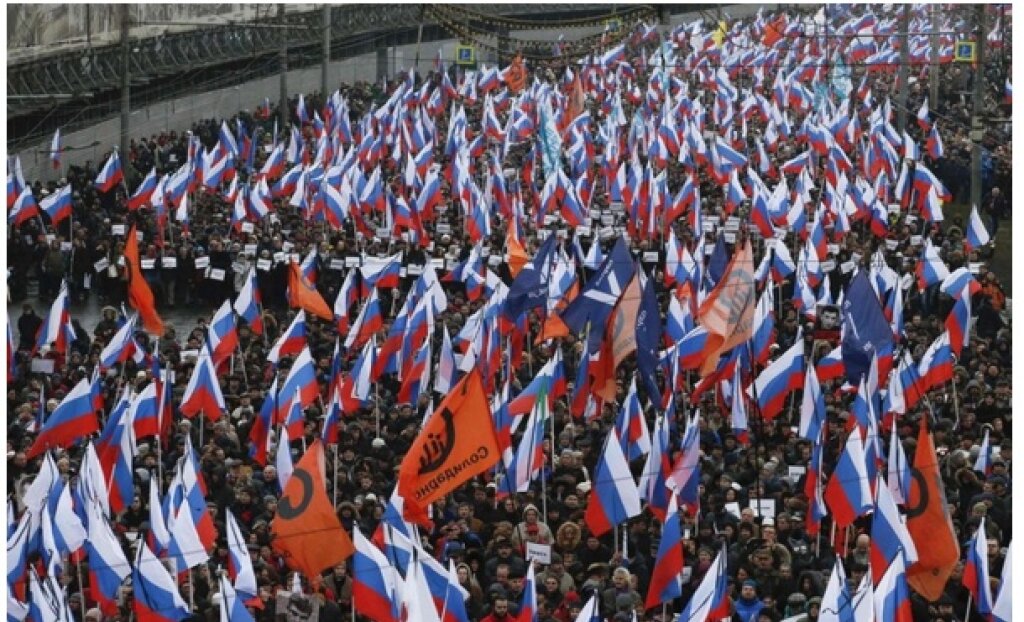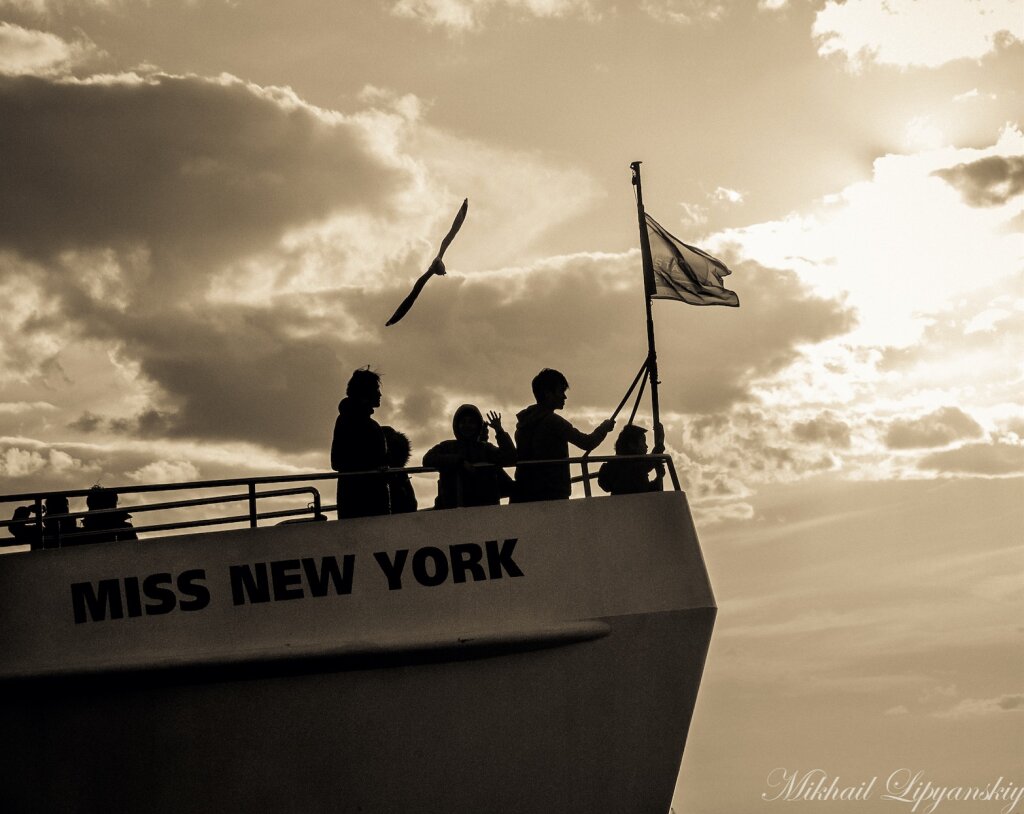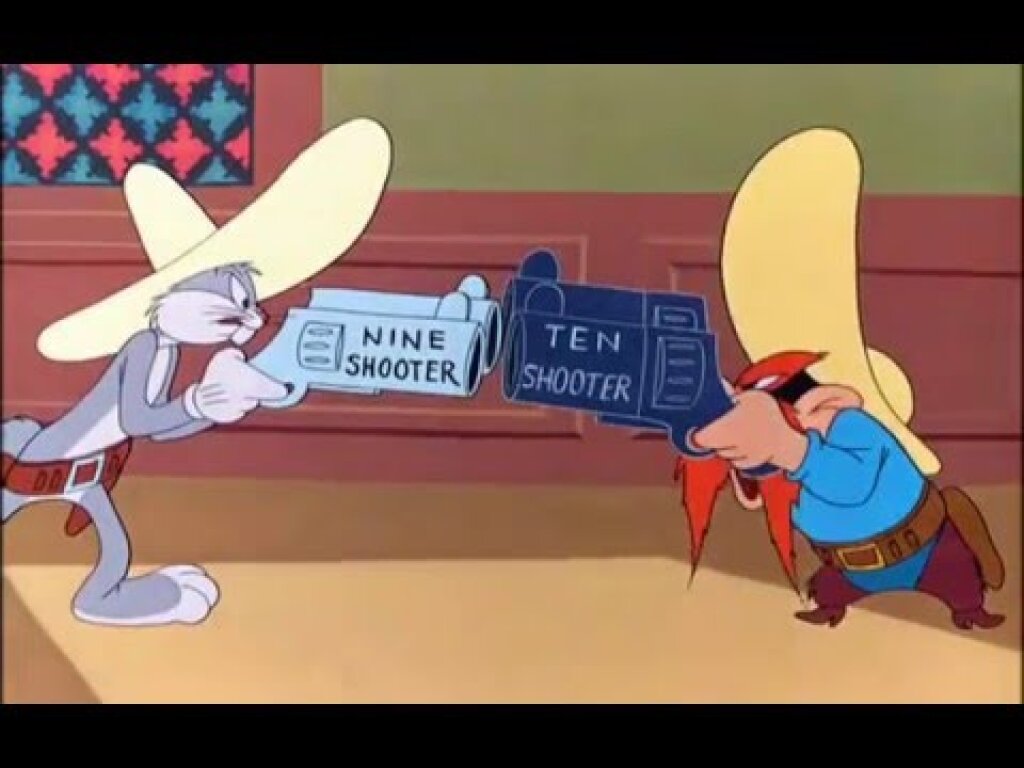Joshua Tucker is a Professor of Politics at New York University.
This post first appeared on The Monkey Cage.
Like many others, I was shocked and saddened by last week’s murder of Russian opposition leader Boris Nemtsov, who I actually had the pleasure of interviewing many years ago. In an effort to wrap my own head around what had happened and what it meant for Russia moving forward, I reached out to colleagues both at PONARS Eurasia and here at NYU. I will offer some of my own thoughts later this week, but for the moment I wanted to share with readers of The Monkey Cage some of the answers I received from those colleagues:
Scott Gehlbach, Political Scientist, University of Wisconsin–Madison
The more I think about Nemtsov’s murder, the more worried I am about what comes next. Historical experience, in Russia and elsewhere, demonstrates that political terror doesn’t require direction from the top. It simply needs a strong signal that terror is okay. And one could hardly ask for a stronger signal than the assassination of a prominent opposition activist a block from the Kremlin.
If Russian authorities were truly interested in preventing a wave of political terror, they would commit to a credible, independent investigation of the Nemtsov killing that would have the authority to assign blame, wherever it may lay. Unfortunately, they have done precisely the opposite. Responsibility for the official investigation has been assigned to the same official who prosecuted oil magnate Mikhail Khodorkovsky, and Russia’s Investigative Committee has organized its investigation around various implausible motives for the killing, including that Nemtsov was a “sacrificial victim” murdered by other members of the opposition.
Dinissa Duvanova, Political Scientist, Lehigh University
Two hours before being shot and killed within the range of Kremlin’s security cameras, Boris Nemtsov gave an interview to Russia’s most reputable oppositional radio, Echo of Moscow. Reading the transcript of his last interview, I can think of several very obvious political implications of the death of this Yeltsin-era liberal reformer and outspoken opponent of Vladimir Putin. Nemtsov’s appearance on Echo of Moscow was part of his campaign to organize an anti-war protest rally on March 1. Following the death of the politician, opposition groups called off the rally and announced a memorial march instead [see picture above]. Clearly the Russian opposition has lost one of its most experienced, popular, and capable members. In the radio interview Nemtsov came with a very strong anti-war rhetoric. In his usual direct and energetic style he attacked President Putin personally for distancing himself from numerous Russian solders and missionaries who died in Donbas. Nemtsov appealed to Russians who lost their family members in Ukraine’s conflict—a call that has strong resonance in a country with universal military conscription.
On top of his direct attack on Putin as a commander in chief of the army engaged in a covert war, Nemtsov had challenged the President to a public debate—an experience Putin never had in the other 3 presidential campaigns he won. The way Nemtsov stated his challenge—“just debate with me,”—put Putin in a rather uneasy position. Would he be afraid to debate someone with no immediate claims for power, but a strong record of public debates, competitive races, and anti-crisis economic policymaking? We will never learn the answer to this question, but it is clear that Nemtsov’s murder points to Kremlin’s three immediate vulnerabilities: the threat of popular protests, civic opposition to military engagement of the conscription-based army, and the failure of mass propaganda aimed at convincing Russians there is no alternative to Putin’s leadership.
Yanni Kotsonis, Historian and Director, Jordan Center for the Advanced Study of Russia, New York University
Why was Nemtsov important?
1. The model of the loyal opposition. The man was controversial in Russia, and the mere fact that he was critical of Putin did not mean that we (as foreign observers) necessarily shared his values. But certain charismatic figures play roles larger than the sum of their ideas. Was it not completely and totally necessarily that someone spoke against power and kept open a debate? Think of it as the role of a loyal opposition: to always criticize and force the government to explain itself to the public. Then again, the government would also have to accept that such a role is necessary.
2. The great man dilemma. We can remark on the capacity of one man to capture a moment and express a movement, if a movement it is. Should we be worried if the movement depends on one man, if the opposition was synonymous with one man’s charisma? We should be looking to see if an opposition can still form without him: it will tell us much about the vibrancy of Russian civil society, at a time when many worry that civil society is weak.
Vladimir Gel’man, Political Scientists European University at St.Petersburg and the University of Helsinki
On February 25th, my article, entitled “Political Opposition in Russia: A Troubled Transformation” appeared in the journalEurope-Asia Studies It concluded with the following statement: “Russia will indeed become a free country. The question is when and how it will happen, as well as what the costs will be of Russia’s path to freedom”. Just two days after, we all learned that the costs will be really high: Boris Nemtsov, one of the leaders of political opposition, was shot dead nearby the Kremlin. In my opinion, it has all the hallmarks of a political assassination provoked by an aggressive Kremlin-induced campaign against the “fifth column of national traitors”, who opposed the annexation of Crimea, war with the West over Ukraine, and further decline of political and civil freedoms in the country. We may never know whether the Kremlin ordered this killing, but given the fact that Nemtsov was one of the most consistent critics not only of the Russian regime as such but also of Putin in person, his dissenting voice will never upset Putin and his inner circle anymore.
The major issue now is to what extent the Kremlin will employ political violence as a major tool of its dominance. Since 2012, it actively used the politics of fear in various forms, ranging from selective imprisonment of activists to public discrediting of its critics. However, increasing economic troubles and threats of rising dissatisfaction among Russians clearly demonstrated that while rulers have few carrots, fear and lies may not end up being strong enough sticks. The experience of numerous autocratic regimes tell us that when the rulers perceived major threats of public disobedience against the background of a dramatic decline in government performance, the extensive use of political violence against its rivals may become widespread (Argentina in 1976-1983 is a prime example of that). In post-Soviet Russia, the state-led use of political violence beyond North Caucasus up until now has been considered taboo for political leadership (the episode of violent clash in Moscow in October 1993 was an exception). The problem is not that the Kremlin is necessarily shy to kill its opponents but rather that it could become a hostage of executors of orders of this kind. But most probably the Kremlin’s choice of further strategy will depend on reaction from society at large. Numbers matter greatly in this respect. If the number of active opponents to the Russian regime remains very low, then the rulers will not need to use political violence. If, on the contrary, this number becomes much higher than it is now, then the use of violence may increase the regime’s chances of being overthrown (as the recent experience of Viktor Yanukovych demonstrated). This is why the killing of Nemtsov may be largely perceived as a turning point in the use of preemptive measures aimed to stop the spread of anti-regime activism.



